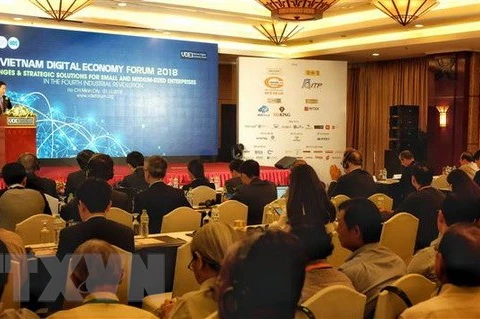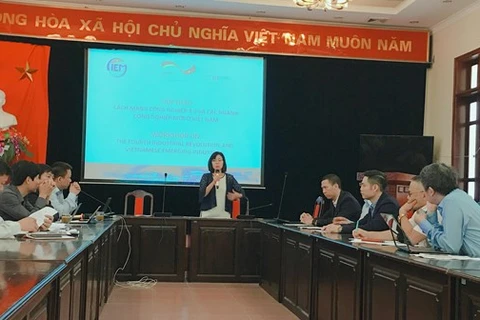Hanoi (VNA) – Vietnam should push reform and development at the same time so as not to lag behind in the new era, Minister of Planning and Investment Nguyen Chi Dung said at the first Vietnam Reform and Development Forum (VRDF) in Hanoi.
Addressing the forum which opened in Hanoi on December 5 under the theme “New vision, new drivers of economic growth in the new era”, the minister explained that the fourth Industrial Revolution is making wide and deep impacts on all socio-economic aspects of all countries worldwide.
The revolution has also created marked changes in production organisation, service supply, business methods as well as consumption habits and human behaviours, Dung added.
In such context, Vietnam is required to make strong and fundamental reforms in order to continue advancing forward.
The minister pointed out that Vietnam is enjoying a “golden” period with a high rate of working-age population and an increasing number of skilled labourers, along with greater opportunities for integration and access to the fourth Industrial Revolution as well as investment inflows from developed economies and multi-national and trans-national groups.
Although Vietnam’s economy is projected to grow 6.85 percent between 2018 and 2020 in some scenarios, the Vietnamese Government has always been aware of challenges and difficulties facing the national economy, he said.
Dung stressed the need to identify both opportunities and adverse impacts of the fourth Industrial Revolution for suitable response, while working harder to improve the country’s innovative capacity, especially in such aspects as the legal and business environment, infrastructure, and information and communications technology (ICT).
The official noted the importance of maximise resources for development, particularly those from the private sector and high-quality human resources.
The private economic sector must become an important driver of the national economy, he said, suggesting stronger connectivity between state and foreign enterprises.
Other tasks include effectively coping with adverse impacts of climate change, handling social issues, ensuring sustainable development and easing challenges and negative impacts of the revolution, especially the widespread use of robots to replace humans, the official added.
In particular, the fundamental driving force for Vietnam’s economy is institutional reform in combination with the improvement of productivity and corporate competitiveness, he said.
Ousmane Dione, World Bank Country Director to Vietnam, said Vietnam has emerged as a strong exporter, with inclusive growth and poverty rate dropping to below 7 percent as compared with 60 percent in the late 1980s.
However, Vietnam’s journey to become a modernized and industrialised economy has just begun, he said, stressing challenges facing the country such as rapid population aging, low growth in productivity and investment, and increasing environmental costs during development.
Therefore, Vietnam should select its own path in the context of the changing world, he suggested.
Organised by the Ministry of Planning and Investment, the annual VRDF aims to strengthen cooperation between Government agencies and development partners, domestic and foreign experts, and organisations, individuals and private sector in order to seek both short- and long-term solutions for Vietnam to push ahead with economic reform and development. -VNA
VNA
























